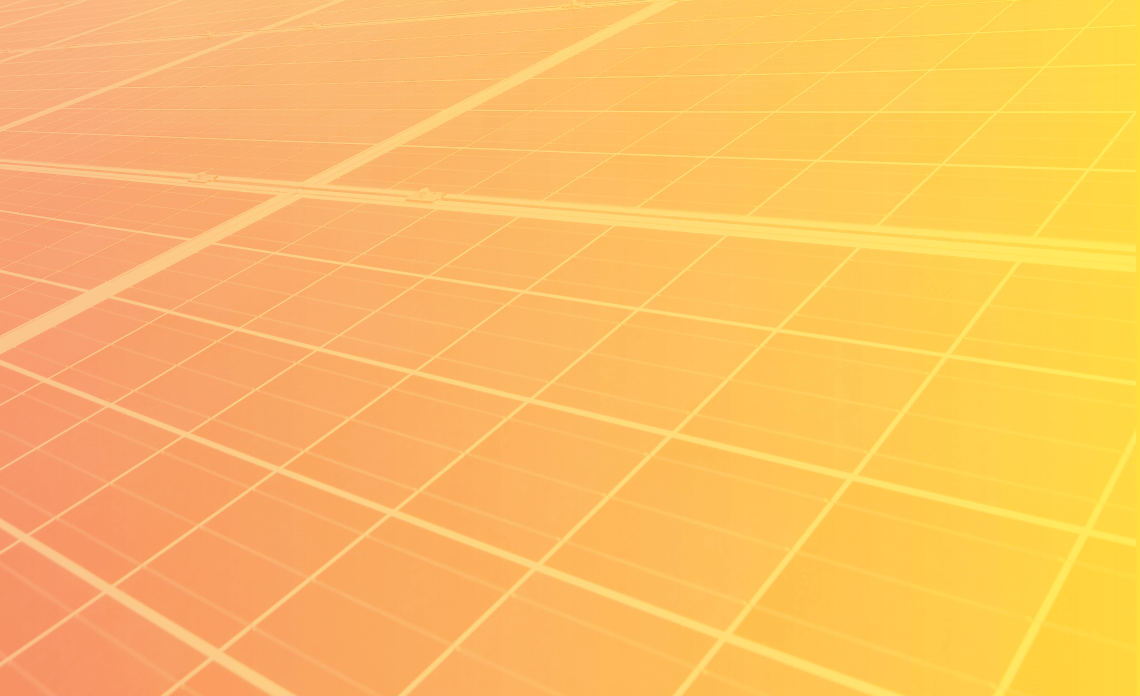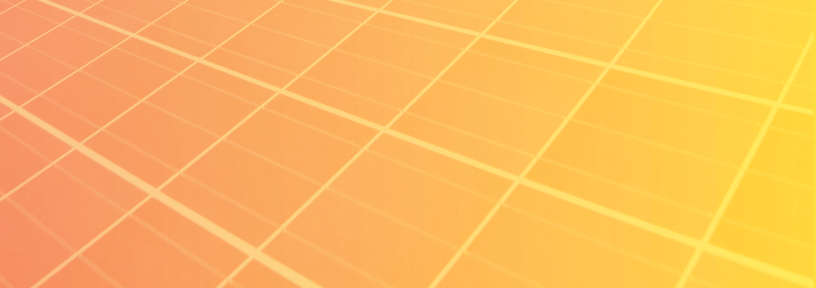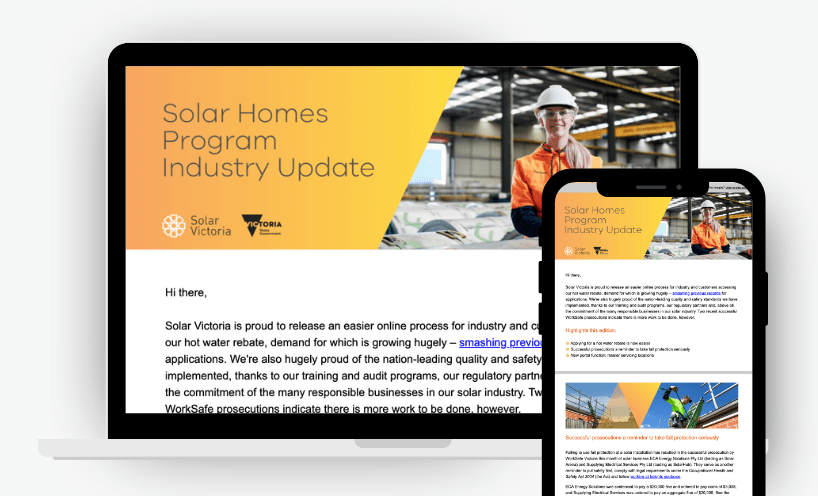We may periodically publish new instructions for retailers and installers. They form part of the terms governing participation in our programs, along with the Terms and Conditions, the Solar Victoria Notice to Market and any other guidelines published to this website.
Instruction issued 30 April 2024 – Telemarketing prohibition
Effective 1 May 2024, authorised Solar Homes Program retailers, or parties acting on behalf of the retailer, must not conduct sales of eligible systems as part of Solar Homes Program using door-to-door or telemarketing sales techniques.
The ban:
- prohibits ‘cold-call’ telemarketing and door-to-door sales techniques to all types of consumers
- prohibits telemarketing and door-to-door sales to prospective or previous customers from being outsourced to contractors or marketing companies
- only permits marketing or sales calls at the request of the consumer or with their express permission, and only within three months or a timeline specified when the consumer opts into calls, and only in accordance with the New Energy Tech Consumer Code
- permits calls to notify a previous customer of a product default or recall that affects them.
This strengthens consumer protections under the Solar Homes Program, particularly for vulnerable cohorts, from persistent, unsolicited or nuisance calls and pressure sales tactics.
It aligns with prohibitions on retailers from contacting consumers who are listed on the ‘Do Not Call Register’ and with the new Victorian Energy Upgrades program marketing ban administered by the Essential Services Commission.
Instruction issued 1 March 2024 – Installer accreditation
We can confirm that solar and battery installers who are authorised to participate in the Solar Homes Program must continue to hold solar accreditation under the Small-scale Renewable Energy Scheme (SRES) and battery accreditation.
As announced by the Clean Energy Regulator on Thursday 29 February 2024, Solar Accreditation Australia (SAA) is replacing the Clean Energy Council (CEC) as the Small-scale Renewable Energy Scheme (SRES) accreditation scheme operator. SAA is also providing a battery installer accreditation scheme, in recognition of the importance of battery accreditation to the market.
Installers and designers accredited through the CEC and SAA remain eligible to participate in the Solar Homes Program during the 3-month transfer period ending Wednesday 29 May 2024.
Authorised installers must transfer their accreditation to SAA by close of business on Wednesday 29 May 2024 to remain eligible to participate in the Solar Homes Program. Transfer accreditation here.
Instruction issued 26 April 2023 – New Energy Tech Consumer Code
All solar panel (PV) and battery retailers seeking to become or continue as an authorised participant in the Solar Homes Program and the Solar for Business Program are now required to be signatories to the New Energy Tech Consumer Code (NETCC). The NETCC has replaced the Solar Retailer Code of Conduct as a mandatory requirement.
The NETCC program is administered by the Clean Energy Council (CEC). The CEC is supporting solar retailers to demonstrate they meet the NETCC standards and become NET Approved Sellers during the transition year. Become a NET Approved Seller here.
Updated status: now incorporated into the Solar Victoria Notice to Market, sections 4.1.1 and 5.1.1.
Instruction issued 8 October 2021 – DC isolators
Solar Victoria issues the following instruction to all solar retailers and installers participating in the Solar Homes and/or Solar for Business programs (programs). This instruction forms part of the Terms governing your participation in the programs and is a requirement of your participation in the programs.
Failure to comply with this instruction may result in Solar Victoria suspending or cancelling your participation in the programs. Solar Victoria issues an instruction to all solar retailers and installers participating in the Solar Homes and/or Solar for Business programs not to install any solar systems under the programs using DC isolators, for which certification has been cancelled under the national Electrical Equipment Safety System (EESS).
Solar PV systems must not be installed under the programs unless they are installed with a DC isolator that holds the required certification and registration. There is no evidence the devices pose a safety risk. Solar Victoria sets the highest standards for safety and quality and is taking this action out of an abundance of caution as the products are not currently registered for lawful supply. Regulators are working to verify that there are no safety concerns with the affected products.
A list of affected models is available on Energy Safe Victoria’s website: DC isolators – cancellation of a number of certifications – Energy Safe Victoria.
Updated


